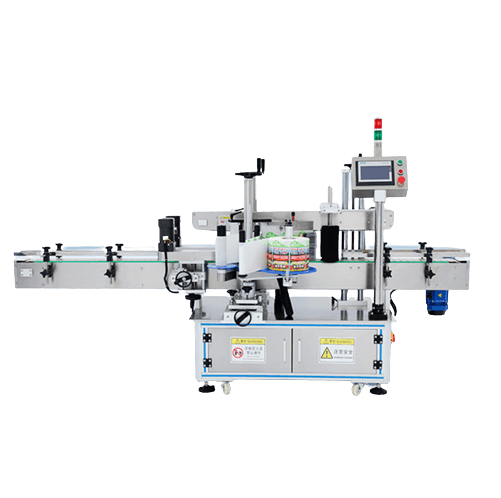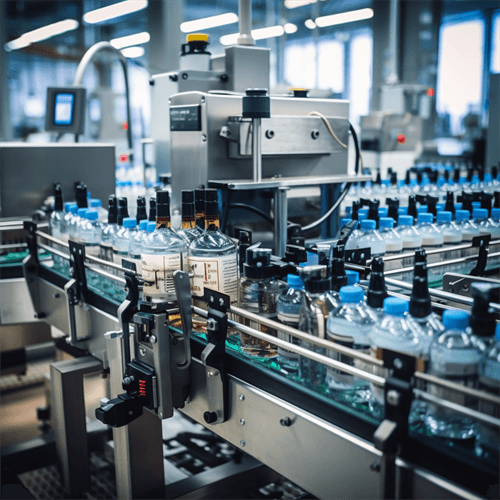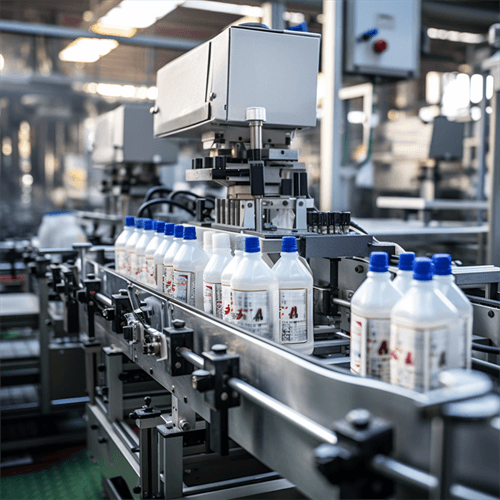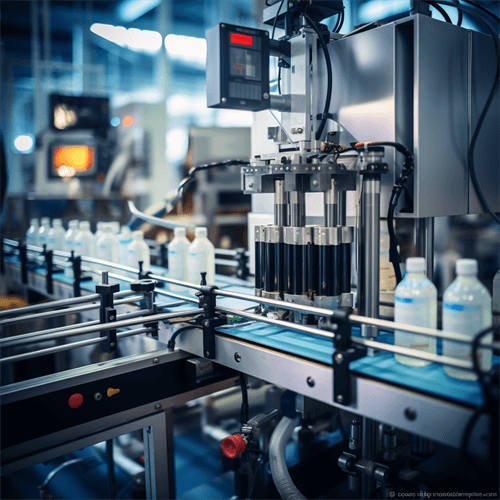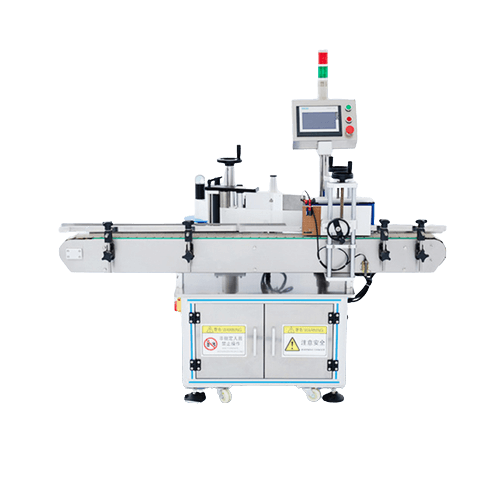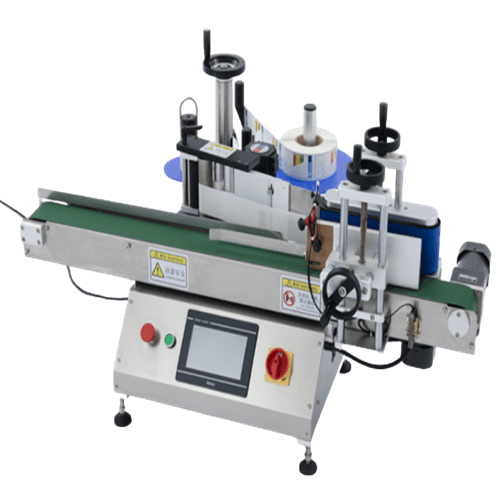5 following key factors
In the dynamic world of manufacturing, bottle labeling machines have become indispensable tools for businesses aiming to enhance efficiency and product presentation. Understanding what customers prioritize in these machines is crucial for making informed decisions and meeting market demands effectively.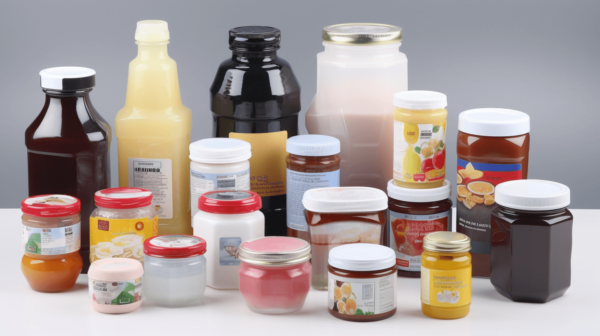
What Matters Most to Customers?
1. Precision Labeling
Customers place a premium on precision when it comes to labeling. The ability of a bottle label machine to apply labels accurately and consistently is a top priority. This ensures a professional and appealing finish on every product.
2. Speed and Efficiency
The pace at which an automatic bottle labeling machine operates is a critical consideration. Customers value machines that strike a balance between speed and accuracy, ensuring efficient production without compromising on label quality.
3. Versatility
The versatility of a labeling machine matters significantly. Customers seek machines that can adapt to various bottle sizes, shapes, and materials. This flexibility ensures that the machine remains relevant as product lines evolve.
4. User-Friendly Interface
Ease of use is a key factor for customers. An intuitive and user-friendly interface reduces the learning curve for operators, enhancing overall operational efficiency and minimizing errors.
5. Durability and Maintenance
Investing in durable equipment is a long-term consideration for customers. Machines that require minimal maintenance and can withstand the rigors of continuous operation are highly valued.
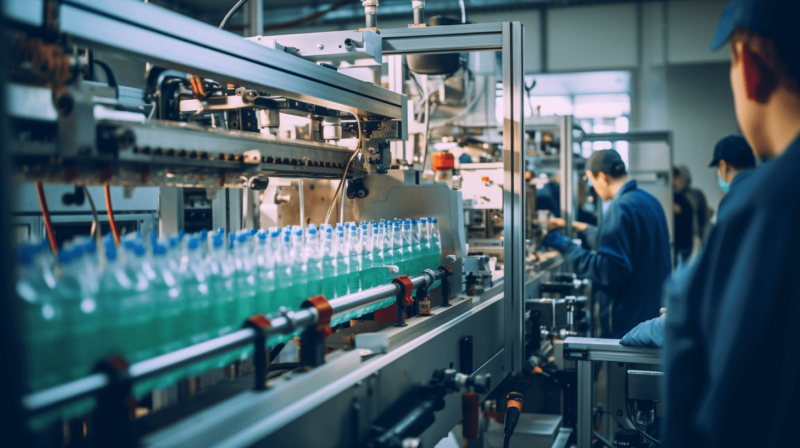
FAQs About Bottle Labeling Machine
Q1: Can a labeling machine handle different label sizes?
Yes, many labeling machine come with adjustable settings to accommodate various label sizes, providing the needed flexibility.
Q2: How fast can a bottle labeling machine operate?
The operational speed varies, but modern machines can label hundreds of bottles per hour, ensuring efficient production.
Q3: Are labeling machines suitable for small businesses?
Certainly, there are labeling machines tailored for small businesses, offering cost-effective solutions without compromising quality.
Q4: What maintenance is required for bottle labeling machines?
Regular cleaning and lubrication are essential for maintenance. Many modern machines are designed for easy and minimal upkeep.
Q5: Can labeling machines handle transparent labels?
Absolutely, labeling machines are equipped to handle transparent labels, ensuring a professional and clear presentation.
Conclusion
In the realm of bottle labeling machines, customer priorities revolve around precision, speed, versatility, user-friendliness, and durability. By understanding these key factors, businesses can make informed decisions, select machines that align with customer expectations, and ultimately thrive in a competitive market.
Choosing the Right Bottle Labeling Machine for Small Businesses
In the dynamic landscape of small businesses, every operational decision plays a pivotal role in success. For those involved in product manufacturing and packaging, the choice of a bottle labeling machine is a critical consideration. This article explores the key factors small businesses should weigh when selecting labeling machine, ensuring efficiency, cost-effectiveness, and scalability in their labeling processes.
Understanding Your Labeling Needs
Before delving into the myriad options available in the market, it’s crucial to assess and understand the specific labeling needs of your small business. Consider factors such as the type of products you manufacture, the production volume, the variety of bottle sizes and shapes, and your budget constraints. By clearly defining your requirements, you can narrow down the options and make a more informed decision.
Factors to Consider When Choosing a Bottle Labeling Machine
1. Production Volume and Speed Requirements
Small businesses often operate with a limited production capacity. Therefore, it’s essential to choose a labeling machine that aligns with your current production volume while allowing room for growth. Opt for a machine that strikes a balance between speed and precision, ensuring that labels are applied efficiently without compromising accuracy.
2. Bottle Size and Material Variability
The diversity in bottle sizes and materials used in small-scale production can be significant. Your chosen jar labeling machine should be versatile enough to handle this variability seamlessly. Look for machines with adjustable settings and adaptable mechanisms to accommodate different bottle shapes, sizes, and materials.
3. Budget Considerations
Small businesses typically operate with tight budgets, making cost-effectiveness a primary concern. Evaluate the initial cost of the labeling machine, as well as long-term operational costs, including maintenance and consumables. While it’s tempting to opt for the least expensive option, consider the overall value the automatic bottle labeler brings to your business in terms of efficiency and reliability.
4. Integration with Existing Production Lines
A bottle labeling machine should complement and integrate smoothly with your existing production processes. Consider the compatibility of the machine with other equipment in your production line. A seamless integration reduces disruptions and enhances overall workflow efficiency.
Case Studies: Successful Implementation of Labeling Machine in Small Businesses
To provide practical insights, let’s explore a couple of case studies where small businesses successfully integrated bottle labeling machines into their operations.
Case Study 1: Artisanal Beverage Producer

Challenge: An artisanal beverage producer faced challenges in hand-labeling their diverse range of bottle sizes and shapes. This manual process was time-consuming and resulted in inconsistent label placement.
Solution: The business invested in a compact, small bottle labeling machine with adjustable settings. This allowed them to label various bottle sizes accurately and significantly reduced labeling time.
Outcome: The labeling process became more efficient, allowing the business to increase its production volume. The investment in the small bottle labeling machine paid off through time savings and improved overall product presentation.
Case Study 2: Customized Cosmetics Manufacturer

Challenge: A small cosmetics manufacturer focused on customized products needed a jar labeling solution that could handle small batches with frequent label changes.
Solution: The business opted for a modular labeling machine for bottles that allowed for quick label changeovers. The machine’s flexibility accommodated the varying sizes and shapes of their cosmetic containers.
Outcome: The ability to customize labels for each product line enhanced brand identity. The efficiency gained from quick changeovers positively impacted the production process, enabling the business to respond swiftly to market demands.
Tips for Installation and Maintenance
Once you’ve selected the right bottle labeling machine for your small business, proper installation and regular maintenance are crucial for optimal performance.
Installation Tips:
Follow the manufacturer’s guidelines for installation to ensure the machine operates at its best.
Conduct a trial run with a small batch before full-scale production to identify and address any potential issues.
Train your operators on the machine’s functions and troubleshooting procedures.
Maintenance Tips:
Establish a routine maintenance schedule, including cleaning and lubrication tasks.
Keep an inventory of spare parts to address any unexpected breakdowns promptly.
Regularly monitor the machine’s performance and address any deviations from the norm.
Conclusion
Choosing the right bottle labeling machine for a small business is a strategic decision that can significantly impact operational efficiency and product presentation. By carefully considering factors such as production volume, bottle variability, budget, and integration capabilities, small businesses can make informed choices that align with their unique needs. The case studies provided highlight real-world examples of how businesses have successfully leveraged bottle labeling machines to enhance their operations. With the right automatic labeling machine and proper maintenance, small businesses can streamline their labeling processes, ultimately contributing to overall growth and success.
Bottle Labeling Machine Structure
- Bottle Feeding: The bottles are usually placed in a hopper or conveyor system that transports them to the labeling station.
- Label Dispensing: Labels are stored on a roll or in a magazine within the machine. The labeling machine is equipped with a mechanism that dispenses one label at a time.
- Label Application: As the bottle moves through the machine, the label is applied to the surface of the bottle. This can be done using various methods, including pressure-sensitive adhesive, glue, or heat for shrink labels.
- Label Smoothing: Some machines may have mechanisms to ensure that the label is smoothed onto the bottle’s surface to avoid wrinkles or bubbles.
- Quality Control: Some machines have sensors to detect whether the label has been applied correctly, and any bottles with faulty labels may be rejected or flagged for inspection.
- Conveyor Output: Labeled bottles are then transported away from the labeling machine, often onto another conveyor for further packaging or processing.
Labeling Machine Price
The prices of labeling machine can vary widely based on several factors, including the type of machine, its features, brand reputation, and geographical location.The prices of labeling machines from Europe and America are excessively high, resulting in prohibitive costs. Here’s a general overview of the pricing range for labeling machines:

- Entry-Level Small Labeling Machines:
- Manual labeling machines are typically the most affordable option, suitable for small businesses or startups. Prices can range from $500 to $2,000, depending on the brand and features.
- tabletop labeling machines:
- tabletop labeling machines offer a middle ground between manual and fully automatic options. Prices for semi-automatic labeling machines typically start around $2,000 and can go up to $10,000, depending on the complexity and speed of the machine.
- Fully Automatic Labeling Machines:
- Fully automatic labeling machines are designed for high-volume production and come with advanced features. Prices for these machines can range from $10,000 to $50,000 or more, depending on the specifications and customization options.
- Specialized Labeling Equipment:
- Specialized labeling machines, such as those used for unique packaging shapes or specific industries, can have higher price points. Prices for specialized equipment can range from $20,000 to over $100,000, depending on the complexity and customization required.
- Additional Features and Technology:
- The incorporation of advanced features, such as RFID technology, vision systems, or smart automation, can significantly impact the cost. Machines with cutting-edge technology may have prices exceeding $100,000, especially if they offer advanced connectivity and data integration features.
- Brand and Reputation:
- Established brands with a strong reputation for quality and reliability often come with higher price tags. Prices can vary based on the brand’s market position and customer trust.
- Geographical Variances:
- The geographical location of the manufacturer can also influence pricing. Machines produced in regions with lower labor and production costs may be more competitively priced than those from regions with higher manufacturing expenses.
- Used Labeling Machines:
- Businesses on a budget may explore the option of purchasing used labeling machines. Prices for used equipment can vary significantly based on the machine’s age, condition, and specifications, but they generally offer a more economical alternative.
It’s essential for businesses to carefully evaluate their specific needs, production volume, and desired features when considering a labeling machine purchase. Additionally, obtaining quotes from multiple suppliers and considering long-term operational costs can contribute to making a well-informed investment decision.
Bottle Labeling Machine Global Market
Advantages of Chinese vs. European and American Manufacturers
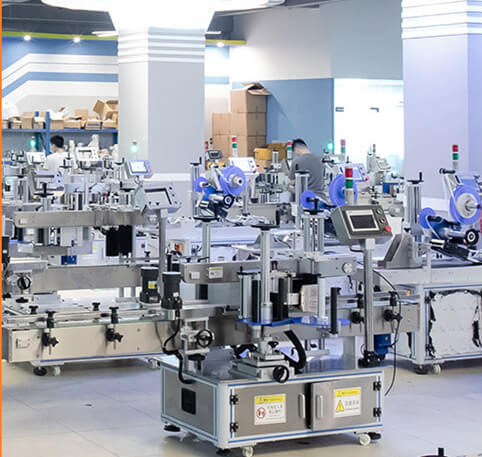
labeling machine working videos
Get in touch today
Receive your free quote

“Outstanding Work”
“As a small business owner, every minute counts. The semi-automatic labeling machine suggested by CN was a perfect fit for our modest production volumes. The easy setup and minimal maintenance have allowed us to focus more on our craft, knowing our labeling is in good hands.”
Sarah L

